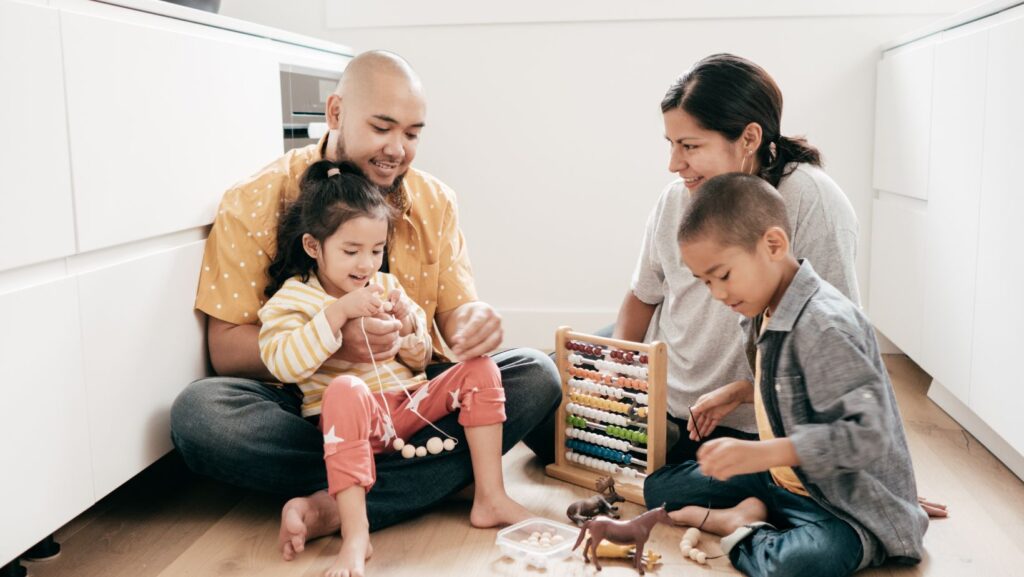Empathy and Understanding: Tips For Step Parenting
Tips For Step Parenting
Establishing clear boundaries is essential for successful Tips For Step Parenting. By setting boundaries, both the step parent and stepchild can understand expectations and create a harmonious environment. Here are some key tips for establishing boundaries:
- Communication: Open and honest communication is vital when setting boundaries. Have regular conversations with your stepchild about rules, expectations, and any concerns they may have.
- Consistency: Be consistent in enforcing boundaries to avoid confusion. Consistency helps establish stability and predictability within the family dynamic.
- Respect: It’s crucial to respect each other’s boundaries. Show respect for your stepchild’s feelings and space while also expecting the same in return.
- Flexibility: While boundaries are important, it’s also important to be flexible when needed. Understand that circumstances may change, and it’s okay to adjust boundaries accordingly.

Building Trust and Rapport
When it comes to Tips For Step Parenting, building trust and rapport with stepchildren is crucial for fostering a strong bond within blended families. Here are some key strategies to consider:
- Spend quality time together: Showing genuine interest in stepchildren’s hobbies and activities can help strengthen the relationship by creating shared experiences.
- Listen actively: Open communication is key. By being a good listener and acknowledging stepchildren’s thoughts and feelings, trust can be established.
- Respect boundaries: Understanding and respecting stepchildren’s boundaries is essential. It shows that their feelings and space are valued, contributing to building a positive relationship.
- Be approachable: Step parents should strive to create a welcoming environment where stepchildren feel comfortable expressing their thoughts and concerns without fear of judgment.
- Set realistic expectations: Step parents should set achievable goals for building trust, recognizing that it is a gradual process that takes time.
By implementing these strategies, step parents can lay a solid foundation for trust and rapport with their stepchildren.

Communicating Openly and Effectively
Effective communication is key in building strong relationships, especially in a blended family setting. Step parents can foster trust and understanding by actively listening to their stepchildren’s thoughts and feelings without judgment. Encouraging open dialogue allows for concerns to be addressed and conflicts to be resolved in a healthy manner. Creating a safe space where everyone feels heard and respected is vital for a harmonious family dynamic.
Setting aside dedicated time for family conversations can strengthen bonds and cultivate a sense of unity. Step parents should aim to engage in meaningful discussions with their stepchildren, showing genuine interest in their lives and experiences. By being present and involved in their daily activities, step parents can establish a deeper connection and nurture a positive relationship.
It’s important for step parents to express themselves clearly and positively, avoiding assumptions and misunderstandings. Using affirmative language and offering reassurance can help build confidence and trust within the family unit. By communicating openly and effectively, step parents can promote a supportive environment where everyone feels valued and understood.
Involving the Biological Parent
When navigating the complexities of Tips For Step Parenting, Involving the Biological Parent is crucial for creating a harmonious family dynamic. Here are some key tips to consider:
- Encourage Communication: Facilitate open and honest communication between the step parent, the biological parent, and the children. This ensures that everyone’s thoughts, feelings, and concerns are expressed and addressed.
- Respect Boundaries: Respecting boundaries is essential in co-parenting situations. Recognize and understand the role of the biological parent in the children’s lives, and work collaboratively to establish healthy boundaries that benefit everyone involved.
- Support Co-Parenting: Supporting co-parenting efforts shows solidarity and a united front to the children. Encourage teamwork, cooperation, and mutual respect among all adults in the blended family to provide a stable and nurturing environment.
- Seek Guidance: If challenges arise, seeking guidance from a family therapist or counselor can be beneficial. Professional support can offer valuable insights, strategies, and tools to navigate complex family dynamics and enhance relationships.
Understanding and practicing empathy is key in successful Tips For Step Parenting. By acknowledging and validating stepchildren’s emotions, step parents can build trust, strengthen bonds, and create a harmonious family environment. Empathy allows for better communication, fosters connection, and helps navigate challenging situations with compassion and understanding. It is essential for step parents to prioritize empathy in their interactions, as it lays the foundation for building positive relationships within blended families. By consistently showing empathy and understanding, step parents can contribute to a supportive and nurturing family dynamic where everyone feels valued and respected. Embracing empathy as a guiding principle in Tips For Step Parenting can lead to more meaningful connections and a happier, more cohesive family unit.
